Win a Limited Edition Copy of Rage of the Behemoth from Rogue Blades Entertainment
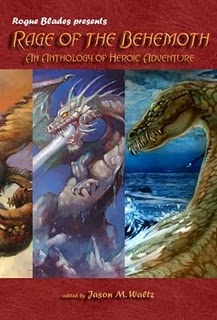 Jason M Waltz, publisher of Rogue Blades Entertainment, is giving away a free copy of the limited edition of Rage of the Behemoth to one lucky winner this week.
Jason M Waltz, publisher of Rogue Blades Entertainment, is giving away a free copy of the limited edition of Rage of the Behemoth to one lucky winner this week.
Described as “Almost 150,000 words of monstrous mayhem recording the ferocious battles that rage between gargantuan creatures of myth and legend, and the warriors and wizards who wage war against, beside, and astride them,” Rage of the Behemoth gathers 21 splendid tales of pure adventure fantasy under one cover, including contributions from Bill Ward, Andrew Offutt & Richard K. Lyon, Lois Tilton, Mary Rosenblum, Sean T. M. Stiennon, Brian Ruckley, Bruce Durham, Jason Thummel, C.L. Werner, and many more.
How do you win? Easy!
Just comment on any of the three posts this week at Rogue Blades Entertainment’s Home of Heroics , and you’ll be entered into a drawing to win a copy. The Home of Heroics is the Grand Central Station for heroic fiction on the Web, and previous writers have included Martha Wells, E.E. Knight, David C. Smith, Charles Saunders, Bill Ward, and many others.
Comments must be made between Monday, July 25, and Friday July 29. Complete details on the contest are here.
Learn more about Rage of the Behemoth here.
You won’t find many contests this easy — or this much fun. Check out Home of Heroics today. You can thank us later.
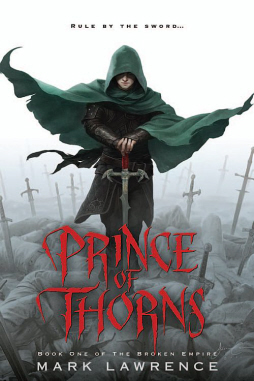
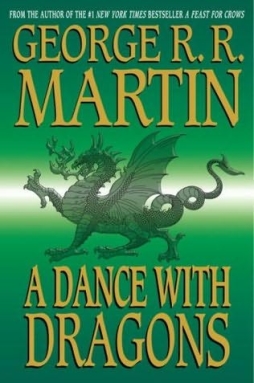 I recently
I recently 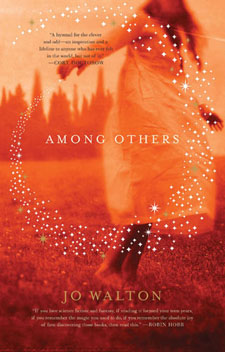

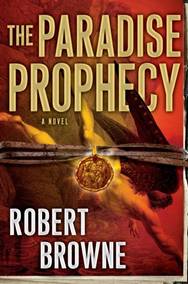
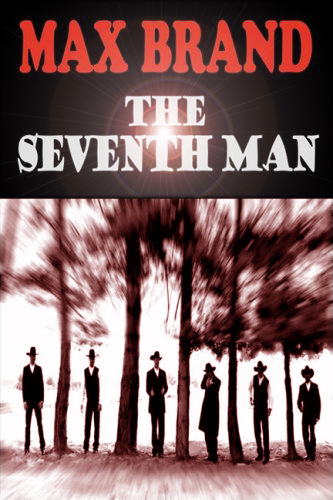 Prelim: The Seventh Man is in the public domain and
Prelim: The Seventh Man is in the public domain and 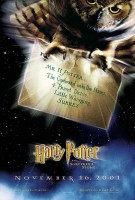 I remember walking through a movie theater and seeing a teaser poster for the first Harry Potter film. It showed an owl carrying a card addressed to Harry, in the cupboard under the stairs. There it is, to the right.
I remember walking through a movie theater and seeing a teaser poster for the first Harry Potter film. It showed an owl carrying a card addressed to Harry, in the cupboard under the stairs. There it is, to the right.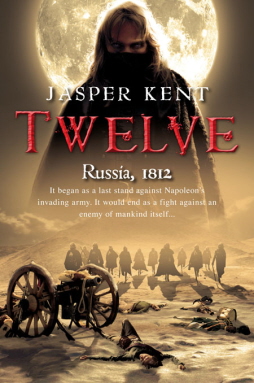 Twelve
Twelve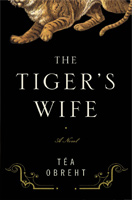 The Tiger’s Wife is an interlocking series of fabulist tales, set in an unnamed Balkan country that is obviously Yugoslavia before and after its dissolution into ethnic political states, which unfolds the life and death of the narrator’s grandfather. It’s a meditation on grief, cultural blindness and bigotry, among other things, but overarchingly the constant effort to try to live a decent life and see the decency in others, even those who seemingly don’t possess it. Written by Téa Obreht, whom The New Yorker named one of the twenty best American fiction writers under forty and the National Book Foundation’s “5 Under 35” list, it is, as you might expect given those accolades, considered a “literary” novel. Which is perhaps why you haven’t seen much mention of it in genre circles, despite the fact that it is a fantasy. However you want to classify it, it’s good and well-deserving of the hype it’s received. One thing that struck me that I don’t think I’ve seen mentioned is the similarity between Obreht and Ray Bradbury in his prime, back in the days when Clifton Fadiman was trying to sell The Martian Chronicles to the literary mainstream.
The Tiger’s Wife is an interlocking series of fabulist tales, set in an unnamed Balkan country that is obviously Yugoslavia before and after its dissolution into ethnic political states, which unfolds the life and death of the narrator’s grandfather. It’s a meditation on grief, cultural blindness and bigotry, among other things, but overarchingly the constant effort to try to live a decent life and see the decency in others, even those who seemingly don’t possess it. Written by Téa Obreht, whom The New Yorker named one of the twenty best American fiction writers under forty and the National Book Foundation’s “5 Under 35” list, it is, as you might expect given those accolades, considered a “literary” novel. Which is perhaps why you haven’t seen much mention of it in genre circles, despite the fact that it is a fantasy. However you want to classify it, it’s good and well-deserving of the hype it’s received. One thing that struck me that I don’t think I’ve seen mentioned is the similarity between Obreht and Ray Bradbury in his prime, back in the days when Clifton Fadiman was trying to sell The Martian Chronicles to the literary mainstream.